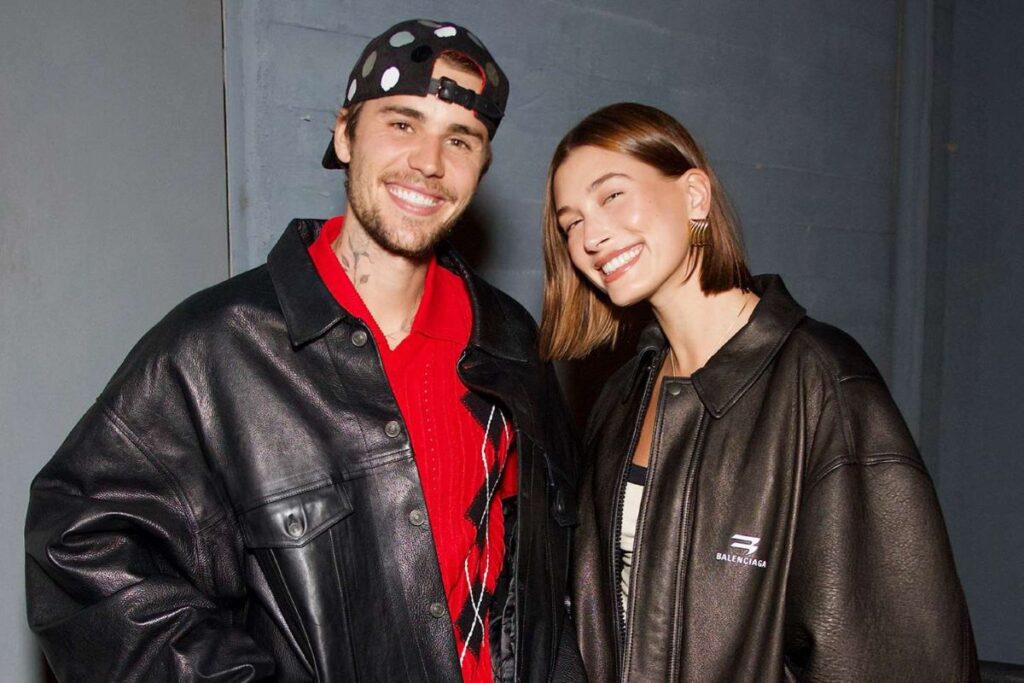Justin Bieber Trauma : Justin Bieber remains one of pop culture’s most compelling figures—not just for his music, but for his unfiltered public journey through fame, faith, and mental health. In a deeply personal Instagram Story posted June 16, 2025, the superstar laid bare an emotional crisis, revealing he felt “traumatized” after a heated text exchange with a friend and admitting to ongoing struggles with “brokenness” and anger. This raw confession, arriving poignantly on Father’s Day, offers a stark window into the human behind the headlines. Let’s unpack what happened, its roots, and why his vulnerability matters.
The Breaking Point: Texts That Triggered Trauma – Justin Bieber
According to reports from People and Rolling Stone, Bieber shared an intimate glimpse into his emotional state via Instagram. He described being deeply shaken by a “heated” text conversation with an unnamed friend, confessing the exchange left him feeling emotionally wounded and overwhelmed. “Traumatized from a convo last night with a friend,” he wrote, adding, “I have a lot of unhealed trauma and it shows up in moments like these.” This wasn’t just about an argument—it was a flare-up exposing deeper, unaddressed pain.
Bieber didn’t shy from accountability. He acknowledged his reaction revealed lingering “brokenness” and “anger issues,” stating plainly: “I have a lot of brokenness… I get angry.” His transparency highlights a critical truth: trauma isn’t logical. It can surface unexpectedly, turning minor conflicts into emotional earthquakes. His willingness to share this publicly—despite global scrutiny—marks a significant moment in destigmatizing mental health struggles.
Unpacking the Trauma: From Child Star to Chronic Pain – Justin Bieber
To understand Bieber’s reaction, we must contextualize his journey. Discovered at 13, his life became a pressure cooker of fame, legal issues, and relentless public judgment. By his late teens, he grappled with depression, substance use, and the whiplash of global adoration turning to ridicule. As he told Rolling Stone, “I went from being a kid with a dream to having every move criticized… It does something to your psyche.”
Physical health battles compounded this. His 2020 Lyme disease diagnosis—alongside chronic Epstein-Barr virus and mono—left him exhausted and in pain, derailing his Purpose tour. Chronic illness is invisibly isolating, often exacerbating anxiety and frustration. As the National Institute of Mental Health notes, long-term health conditions significantly increase risks for mood disorders—a layer often overlooked in Bieber’s narrative.
Hailey, Faith, and the Fight for Stability – Justin Bieber
Central to Bieber’s healing has been his marriage to Hailey Bieber (née Baldwin). Since their 2018 wedding, she’s been a stabilizing force, openly supporting him through mental health crises. His Father’s Day post, as noted by USA Today, carried extra weight amid his turmoil. While celebrating Hailey’s father, Stephen Baldwin, he wrote: “Happy Father’s Day to the best father-in-law.” This juxtaposition—trauma confession alongside family gratitude—underscores his dual reality: struggling yet fiercely protective of his support system.
Faith also anchors him. Bieber’s conversion to evangelical Christianity in 2014 reshaped his life. He credits prayer, church community, and therapy with helping him manage anger and anxiety. “God’s grace covers me daily,” he’s often shared. This spiritual framework provides structure amid chaos, though as his recent post shows, healing isn’t linear.
Father’s Day and the Shadow of Paternal Relationships – Justin Bieber
The timing of Bieber’s post—on Father’s Day—resonates deeply. His relationship with his father, Jeremy Bieber, has been complex. Jeremy struggled with addiction during Justin’s childhood, leading to periods of estrangement. Though reconciled, childhood instability often leaves lasting scars. Psychologists emphasize that early parental relationships profoundly shape emotional regulation. Unresolved father-son dynamics can fuel anger and trust issues, making Bieber’s Father’s Day vulnerability especially poignant. As USA Today observed, his public shout-out to Hailey’s father contrasted with silence about his own, hinting at ongoing personal work.
The Science of Anger: When Trauma Becomes Trigger – Justin Bieber
Bieber’s admission of “anger issues” reflects a common trauma response. When past wounds go unhealed, the brain’s amygdala can perceive threats everywhere—a phenomenon called hypervigilance. A tense text might unconsciously echo childhood conflict or public shaming, triggering disproportionate rage. As the American Psychological Association explains, anger often masks deeper pain: helplessness, fear, or shame. Bieber’s self-awareness—”I have a lot of unhealed trauma and it shows up”—demonstrates crucial progress. Naming the wound is step one toward disarming it.
Why His Vulnerability Matters: A Cultural Shift – Justin Bieber
Celebrities like Bieber, Demi Lovato, and Selena Gomez have transformed mental health discourse. By sharing struggles, they normalize seeking help. Bieber’s post wasn’t a plea for sympathy; it was a public diary entry modeling accountability. He followed up by emphasizing therapy and spiritual counseling—tools anyone can access. This aligns with a generational shift: Gen Z and millennials prioritize mental wellness, demanding authenticity over the “perfect star” façade. As Bieber wrote, “We’re all human… We all have our stuff.”
The Path Forward: Healing Isn’t Linear – Justin Bieber
Bieber’s journey underscores that recovery isn’t a destination but a daily practice. He’s canceled tours, entered treatment, and prioritized marriage over music—all radical acts in an industry demanding constant output. His recent text incident proves setbacks happen. Yet his response—public honesty, recommitting to healing—shows resilience. As he told fans: “Be patient with yourself… Healing takes time.”
For Bieber, music remains therapeutic. His 2021 album Justice processed pain through song, and sources hint new work may channel this latest chapter. Whether he’s on stage or in therapy, his message is clear: struggle isn’t failure. It’s human.
Final Thoughts: The Courage to Be Broken – Justin Bieber
Justin Bieber’s viral Instagram confession is more than gossip—it’s a masterclass in vulnerability. By exposing his “brokenness,” he challenges the myth of celebrity invincibility and offers fans permission to feel their own pain. His trauma, anger, and Father’s Day reflections weave a relatable tapestry of modern mental health: messy, ongoing, and worthy of compassion. As he continues navigating fame, faith, and healing, one truth shines through: in embracing our cracks, we find our strength. And sometimes, that starts with a simple, brave admission: “I’m not okay today—and that’s alright.”



dl6gu5
0fhusm